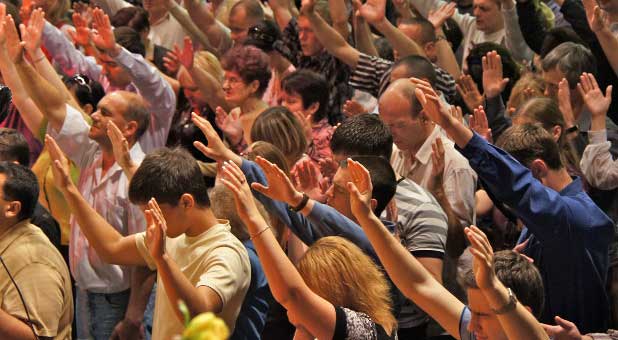As a cardiologist, I use every tool at my disposal to help my patients win their battles against heart disease. In addition to cholesterol-lowering drugs, cardiac medications, tests and procedures, I also frequently recommend that my patients give their local church a try. In fact, I’ve found this to be one of my most effective therapies.
Researchers studying the relationship between high blood pressure and religious activity recently examined 4,000 older adults. Their study, published in the International Journal of Psychiatry in Medicine, found that those who attended religious services once a week or more and prayed or studied the Bible once a day or more had a 40 percent lower diastolic blood pressure reading than those who attended services and prayed less often.
This does not surprise me. I’ve written before about one of my patients I call “Alligator Annie,” who ran a small country store in the Everglades and kept a shotgun on hand to scare away alligators.
Her high blood pressure was resistant to most medications, and I came to realize that she was suffering from anxiety. I tried a number of techniques to help her lessen her stress, but all failed. Finally, I asked her if it was OK if I prayed for her. She accepted, and eventually, she began to follow a more church-oriented path, going to services and becoming involved in the religious community.
Within a year-and-a-half, her blood pressure was under control. I’ve seen results like this many times. By going to church, my patients become part of a community that offers them support and positive reinforcement to make the changes they can’t make on their own.
Another study, which was published in the Journal of Gerontology series A: Biological and Medical Sciences, looked at the correlation between religious activity and smoking in 3,968 people. The researchers found that the more religious activities a person became involved in, the less likely it was that they would continue to smoke.
Of course, less smoking translates into lower rates of high blood pressure and coronary artery disease, along with reducing the risk of lung cancer and chronic pulmonary disease.
Chauncey W. Crandall, M.D., F.A.C.C., chief of the cardiac transplant program at the world-renowned Palm Beach Cardiovascular Clinic in Palm Beach Gardens, Fla., practices interventional, vascular and transplant cardiology. Dr. Crandall received his postgraduate training at Yale University School of Medicine, where he also completed three years of research in the cardiovascular surgery division. Known as the “Christian physician,” Dr. Crandall has been heralded for his values and message of hope to all his heart patients.
For the original article, visit chaunceycrandall.com.















































